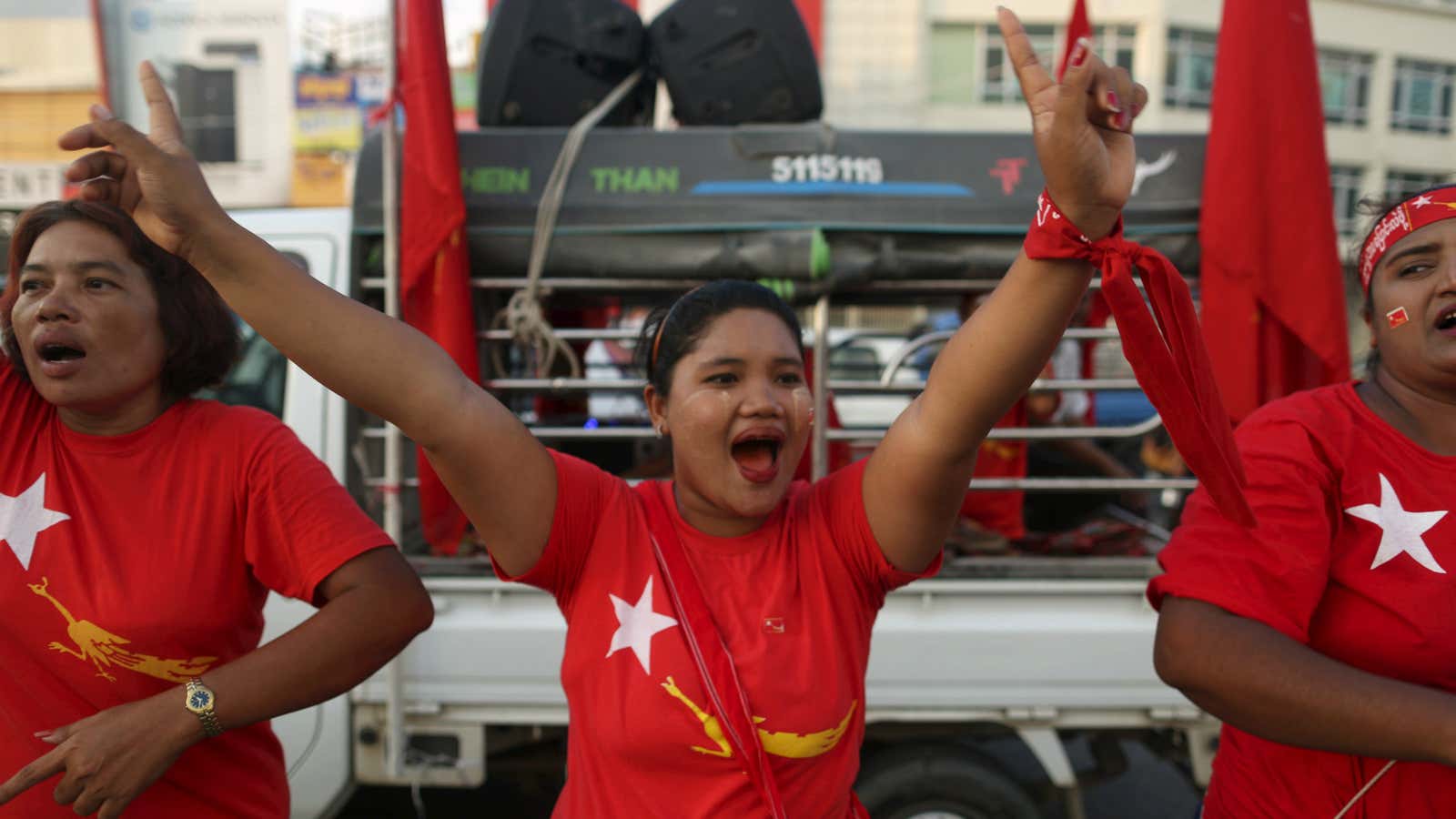Recent history is littered with once-promising democratic movements that turned into abject failures. The Arab Spring’s increasingly brutal aftermath is likely to be felt for years to come, and neighboring nations are struggling to absorb the millions of refugees fleeing the turmoil.
Perhaps that’s one reason Sunday’s (Nov. 8) election in Myanmar, hailed as the first real exercise of democracy in the military-dominated nation in decades, has so captured the imagination of the country’s neighbors, and the Western press. With a population of just 53 million, about half the size of the Philippines, Myanmar’s real importance to the world isn’t economic, but as as a symbolic battleground between the forces of authoritarianism and democracy.
As the Burmese-American historian Thant Myint-U eloquently explains in Nikkei’s Asian Review, the world is watching because Myanmar might provide “a model of peaceful change from dictatorship, at a time of failed transitions and enduring authoritarian regimes elsewhere.”
In recent weeks, the government of the world’s largest authoritarian state has seized on the growing Syrian refugee crisis as a sign that the push to transform countries into democracies is a mistake. “It’s worth pondering,” one op-ed in Chinese state media asks, “the fact that the US and Europe have always treated ‘democracy’ as a universal value and have sold it everywhere in the world.” The approach is “short-sighted,” it claims.
There’s no question that Myanmar’s election, and the immensely popular Aung San Suu Kyi’s National League for Democracy party, is imperfect. Muslims, who make up as much as one-tenth of the country’s people, have been banned from running, and in some cases from voting, there are plenty of serious questions about the polling process, and concerns about how completely the Union Solidarity and Development Party will actually yield power if they lose. Suu Kyi herself is barred from becoming president.
Nonetheless, millions of people cast their vote without any reports of violence. As the results are being tallied, Suu Kyi’s party is already hinting at victory. The rest of the world is watching closely to see what happens next.




